Rapido To Invest INR 1.5 Billion In Mobility And Infrastructure
- By MT Bureau
- February 08, 2025
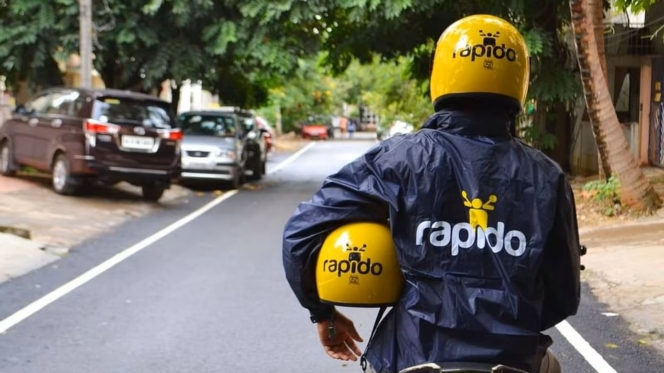
Rapido has signed a Memorandum of Understanding (MoU) with the Transport Department of the Government of West Bengal to enhance urban mobility in the state. Currently executing one lakh rides per day across West Bengal, Rapido, as per the MoU will invest INR 1.5 billion towards initiatives such as electric mobility, women’s safety and to create road safety awareness.
A significant portion of the INR 1.5 billion, which is INR 1.3 billion, will be directed towards the development of urban electric mobility by deploying electric vehicles across Kolkata and other parts of the state. Rapido will also work on building the necessary infrastructure to support a seamless transition to sustainable transportation in line with West Bengal’s commitment to reduce carbon emissions and improve last-mile connectivity.
As per the MoU, Rapido will also focus on ‘Pink Mobility’ initiative, a programme that is designed to provide safe and reliable commuting options for women. The company will introduce a dedicated fleet of pink-coloured two-wheelers and four-wheelers, driven by women captains. To further encourage women’s participation in the transport sector, Rapido will also provide financial assistance worth INR 120 million over the next three years to enable women captains to own and operate their vehicles.
As part of the arrangement, Rapido has also pledged INR 50 million towards road safety and awareness campaigns. This will include quarterly driver training programmes in collaboration with government-accredited training centres, public awareness campaigns on traffic regulations and helmet distribution drives. Rapido will also work closely with the Transport Department to support state-led road safety initiatives, reinforcing its commitment to creating a safer commuting environment.
Image for representative purpose only.
- RV College of Engineering
- RVCE
- Dover India
- Dover Corporation
- hydrogen
- Vivek Srivastava
- Tushar Banerjee
- Prashanth Santhanam
- Dr M P Shyam
- Dr K N Subramanya
- Rashtreeya Sikshana Samithi Trust
- Dr Geetha K S
- Dr Ujwal Shreenag Meda
Dover India and RV College of Engineering Establish Advanced Hydrogen R&D Facility
- By MT Bureau
- July 03, 2025
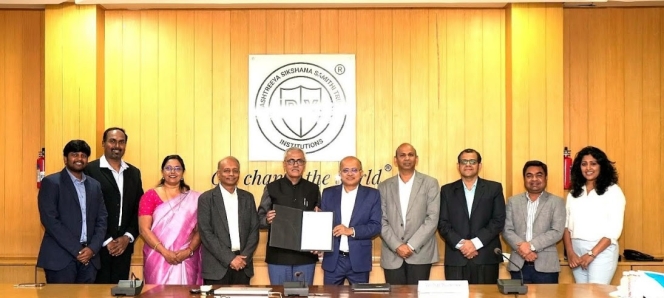
Dover India, part of USD 7 billion Dover Corporation, has joined with RV College of Engineering (RVCE), Bengaluru, to set up a laboratory in Materials and Component Reliability Testing under the Centre for Hydrogen and Green Technology, a Centre of Excellence at RVCE.
The facility will focus on research in the area of hydrogen technologies and advanced material reliability under extreme environments. The idea is to explore emerging areas in hydrogen technology such as sustainable materials, Internet of Things (IoT) and Industry 4.0 solutions. The lab will be housed within the RVCE campus.
The partners state such facilities, designed according to global standards, are first-of-their-kind in India and are available only in a handful of countries globally. It will bring over 20 technologists from Dover and RVCE to work on next-generation research focusing on generation, storage, transportation, handling, safety and end-applications for hydrogen.
Established in 2021, Dover India’s R&D arm in Bengaluru, is claimed to have emerged as a leading Innovation Centre focusing on prognostics, tribology, corrosion and coatings, polymer synthesis and material characterisation.
Vivek Srivastava, R&D Head, Dover India, said, “Collaborating with RVCE enables us to foster a strong academia-industry partnership that will fuel the next wave of clean energy innovation and cover the entire spectrum of basic and applied research in this area.”
The Memorandum of Understanding (MoU) formally signed between the two organisations saw participation from Dover India’s Tushar Banerjee, Vice President & Managing Director and Prashanth Santhanam, Senior Director – Finance. Dr M P Shyam, President – Rashtreeya Sikshana Samithi Trust (RSST), Dr K N Subramanya, Principal – RV College of Engineering and Dr Geetha K S, Vice Principal – Strategic Higher Education Leader, Expert in STEM Curriculum Development, Research & Innovation and Dr Ujwal Shreenag Meda, Coordinator, Centre for Hydrogen and Green Technology represented RVCE.
MoRTH Announces New Motor Vehicle Aggregator Policy To Bring In More Accountability & Transparency
- By MT Bureau
- July 02, 2025

The Ministry of Road Transport & Highways (MoRTH) has introduced the Motor Vehicles Aggregator Guidelines, 2025, a revamped policy aimed at modernising the ride-hailing sector with a focus on safety, driver welfare and transparent operations. Under the new guidelines, a structured fare system and clear cancellation penalties are now in place.
The policy states that the State Government's notified fare will serve as the base fare, wherein aggregators can charge a minimum of 50 percent below during non-peak hours and a maximum of two times the base fare during peak demand (as compared to 1.5x). A base fare for a minimum of 3km is chargeable to compensate for dead mileage.
Drivers are guaranteed at least 80 percent of the fare, with daily, weekly or fortnightly settlements. For aggregator-owned vehicles, drivers receive at least 60 percent of the fare.
A penalty of 10 percent of the fare (up to INR 100) may be imposed for unvalidated cancellations by either the driver or the passenger. No charge for dead mileage will apply unless the ride distance is less than 3km, the fare will only be charged from origin to destination.
The new policy introduces important provisions for aggregators:
Passenger Insurance: A minimum insurance cover of INR 500,000 for passengers is now mandatory.
Aggregators cannot prevent drivers from working with multiple platforms. A mandatory in-app rating system for both drivers and passengers is required to ensure quality service.
Furthermore, a comprehensive mandatory 40-hour Induction Training Programme is now compulsory for drivers, covering app usage, legal provisions, first responder training, safe driving and sensitivity towards gender and Divyangjans.
Drivers must undergo mandatory medical examinations, psychological analyses and police verification. Aggregators will also need to provide a Health insurance (minimum INR 500,000) and term insurance (minimum INR 1 million) for each driver, with annual increases.
Annual refresher training is now mandated, with quarterly training for drivers with low ratings. Aggregators are not allowed to onboard vehicles older than 8 years from their initial registration. The app and website (aggregator) must disclose the proportion of fare and incentives provided to drivers.
To ensure accessibility, the aggregator apps must now include special features for Divyangjans, which also provides for divyangjan-friendly vehicles mandated by State governments.
Aggregators must maintain a 24x7 control room and call centre with the vehicles requiring functional tracking devices linked to government control centres, with in-app mechanisms to detect route deviations and alert authorities.
The aggregators are responsible for the safety of all passengers, particularly children, women and Divyangjans.
- Traton Group
- L&T Technology Services
- LTTS
- ADAS
- autonomous
- Alind Saxena
- Navistar
- MAN
- Scania
- Volkswagen Truck & Bus
- International
Traton Group Onboards L&T Technology Services As Strategic Partner To Support Global R&D Transformation
- By MT Bureau
- July 02, 2025
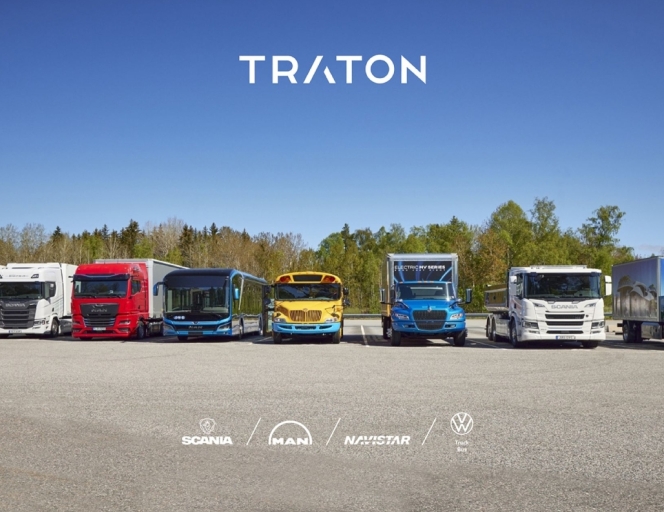
Bengaluru-headquartered engineering R&D services company L&T Technology Services (LTTS) has been selected by the Traton Group, one of the world’s leading manufacturers of commercial vehicles housing iconic brands such as Scania, MAN, International and Volkswagen Truck & Bus, as a strategic engineering partner.
As per the understanding, Traton Group will leverage LTTS’ Mobility segment to build a unified, future-ready product-development platform that delivers scale, speed and sustainable mobility solutions.
The automotive major recently consolidated its global R&D ecosystem to unlock cross-brand synergies while expanding the share of battery-electric vehicles in line with its 2029 profitability and sustainability targets.
On the other hand, LTTS’ will provide engineering support, from mechanical and software engineering to digital systems integration - across key development hubs in Sweden, Germany, the United States, Poland and India.
The collaboration will focus on software-defined vehicle architectures, electrified powertrains, autonomous & ADAS feature development and advanced digital engineering toolchains.
Alind Saxena, Executive Director & President - Mobility & Tech, L&T Technology Services, said, “Being selected by Traton Group is a testament to LTTS’ leadership in next-generation Mobility engineering. This collaboration underscores our commitment to delivering cutting-edge solutions that align with Traton’s vision of sustainable and intelligent transportation. With our proven track record in engineering transformation, we are excited to help Traton achieve its ambitious goals of electrification, autonomy, and digital innovation while redefining the future of commercial mobility.”
- SRM Institute of Science and Technology
- Centre for Electrical Mobility
- Stellantis
- Ashwin Kaundinya
- Dr Bharatiraja Chokkalingam
- Dr C Muthamizhchelvan
- Sriram Venkataramanan
Stellantis Partners SRMIST To Drive Innovation & Practical Learning In EV Domain
- By MT Bureau
- July 02, 2025

SRM Institute of Science and Technology’s (SRMIST) Centre for Electrical Mobility (CEM) has partnered with European automotive major Stellantis to support an advanced research environment that will drive innovation, skill development and support bringing concepts to real-world technologies.
Ashwin Kaundinya, AGM e-mobility propulsion systems, Stellantis, said, “We applaud SRMIST’s visionary approach to EV research. Their focus on real-world innovation and academic excellence complements Stellantis’ mission to drive sustainable mobility forward.”
Dr Bharatiraja Chokkalingam, Centre Head - SRM Centre for Electric Mobility, added, “Our DST-PURSE grant underscores SRMIST’s commitment to advancing electric and autonomous mobility. At the Centre for Electric Mobility, we’re creating a national platform that unites innovation, skill development, and industry-focused education, equipping students, entrepreneurs, and researchers to drive India’s sustainable mobility transition.”
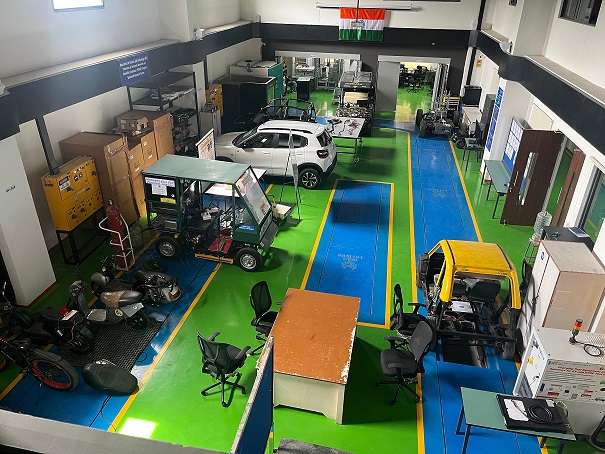
As part of the collaboration, Stellantis India has provided 2 Citroen e-C3 EVs to the centre to provide real-world hands-on experience on system testing, diagnostics and performance optimisation. In addition, Stellantis will closely work with the institute in terms of technical engagement and facility visits from its leadership team.
Dr C Muthamizhchelvan, Vice-Chancellor, SRM Institute of Science and Technology, said, “At SRM IST, we are deeply committed to building an ecosystem of innovation that advances the frontiers of electric mobility, sustainability, and automobile engineering. Through strategic collaborations with industry leaders and focused investment in cutting-edge research infrastructure, we are shaping the next generation of engineers and thought leaders. Our Centre for Electrical Mobility is not just a research hub, it is a platform for excellence, real-world learning, and nation-building in the era of green transportation.”
Sriram Venkataramanan, Head IAP, Propulsion Controls, Electric Drive Systems and Battery, Stellantis India, said, “At Stellantis, we believe that the future of sustainable mobility lies in forging strong, innovation-led partnerships with academic institutions that combine deep research capabilities with real-world engineering insight.
SRM IST’s Centre for Electrical Mobility exemplifies this ideal. Their ability to translate advanced simulations into modular, production-ready EV systems validated through rigorous testing makes them a perfect partner for us. Together, we are not only co-developing next-generation electric vehicle technologies but also nurturing the talent and thinking that will drive tomorrow’s mobility solutions.”


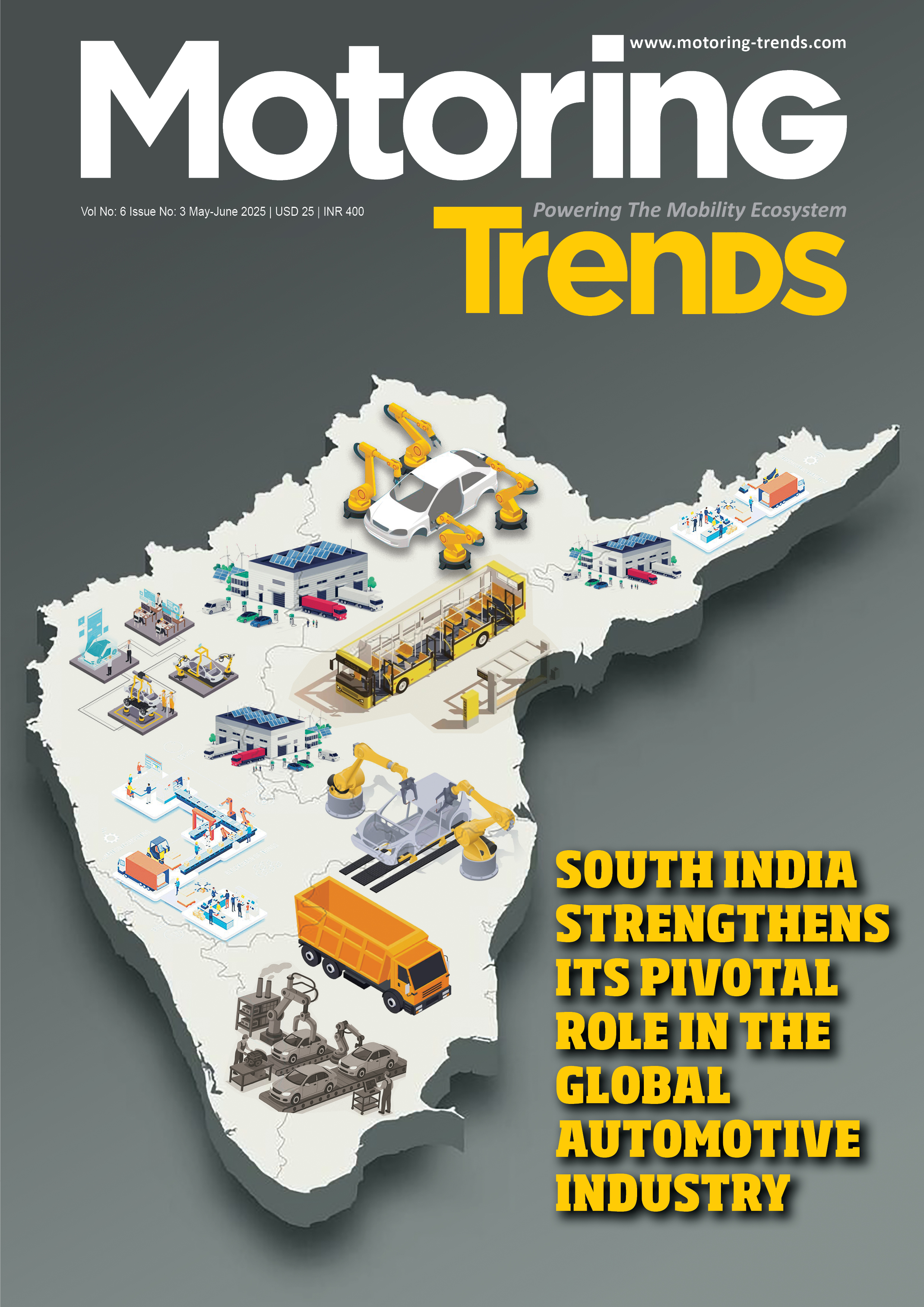
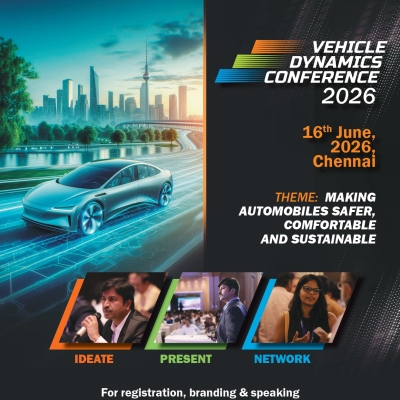
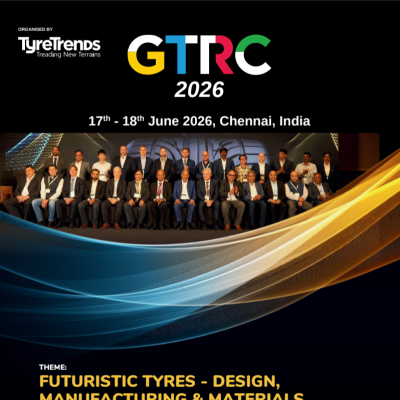
Comments (0)
ADD COMMENT